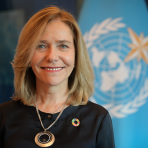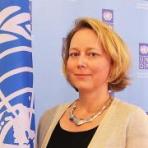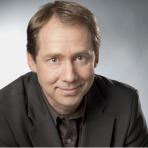World Meteorological Day 2024 Ceremony


Genève, Switzerland
Join us for the World Meteorological Day celebration to spotlight climate action. The ceremony embraces all the key players involved in tackling the climate crisis: the UN family. National meteorological and hydrological services, youth and civil society, policymakers and the private sector.
This year, the World Meteorological Organization (WMO) is partnering with the UN Development Programme to launch a climate action campaign to raise awareness globally and mobilize society to act. This campaign will be launched on 21 March on television and social channels and live on stage at the WMO. It is supported by national meteorological and hydrological services, weather presenters and media outlets around the world.
The message of the campaign is about ambition, commitment, and action from both policymakers and individuals. If we all join together, we can keep the 1.5° degree ambition alive.
World Meteorological Day is on 23 March.
Programme
15:00-15:25
Welcome and introduction – by WMO Secretary-General Prof. Celeste Saulo and WMO President Abdulla Al Mandous and Agi Veres, Director, Geneva office, United Nations Development Programme, and launch of the UNDP climate action campaign.
15:25-15:30
How the weather has changed – Philippe Jeanneret, Swiss television weather presenter
15:30-15:45
Zebraside Conversation - Storytelling and Science. Boaz Paldi, UNDP Chief Creative Officer and Lauren Stuart, WMO Scientific Officer
15:45-16:25
High-level panel discussion on "How to keep the 1.5° goal of the Paris Agreement alive?" (see below)
Panelists:
- Marie-Claire Graf, Future Leaders Network (Moderator)
- Prof. Celeste Saulo, Secretary-General of WMO
- Agi Veres, Director, Geneva office, United Nations Development Programme (UNDP)
- Matthew Wilson, Permanent Representative and Ambassador of Barbados
- Rosa Sangiorgio, Head of ESG, Pictet Wealth Management
16:25-16:35
Q&A with the audience in the room
16:35-16:40
Saving lives, at the forefront of climate action, Perspectives from WMO and meteorological services
16:40-16:50
Concluding remarks
How to keep the 1.5° goal alive?
The WMO State of Global Climate report reminds everyone of the urgency to tackle the climate crisis. Everywhere in the world, people are already suffering from the negative impact of climate change. Rising temperatures, extreme weather, ocean heat and acidification, ice and glacier retreat affects human health, economies and ecosystems. Science shows that negative impacts are increasing and some changes risk being irreversible.
Climate action is essential to sustainable development, including good health, access to water and sanitation and freedom from poverty and hunger. There is no avenue for human development without prioritizing climate action.
The Paris Agreement on climate change laid the ground to design robust climate action through the nationally determined contributions (NDCs) and the ratcheting mechanism that obliges governments to review and enhance their goals every five years.
Everyone agrees on the need to abide by the lower 1.5° target of the Paris ambitions. Can we still reach it and under which conditions? How is it that despite scientific evidences and a wealth of climate data, public policies are not going faster and wider? What is expected from the different actors – including the public, corporate and financial sector? How do young people have a say in increasing climate ambition and contribute to moving the needle?
Speakers









